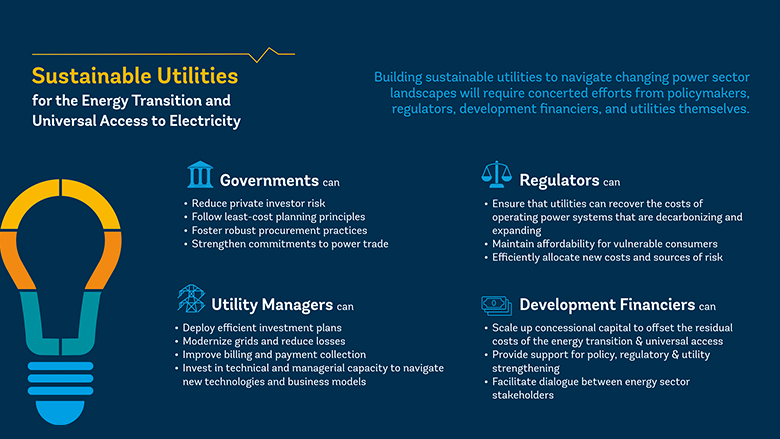Empowering Electric Utilities for the Energy Transition
To date, the goals of the energy transition and universal access have received more attention than the importance of electric utilities in achieving them. Filling this gap, the World Bank's new report, The Critical Link: Empowering Utilities for the Energy Transition, serves as a call to action for policymakers, regulators, utilities, and financiers. It shows that many electric utilities in developing countries struggle to meet growing power demands and integrate renewable energy sources into their grids. This shortfall undermines the global goals of providing clean, reliable, and affordable electricity to all.
The Utility Performance Gap
The report and UPBEAT dashboard examine over 180 utilities in more than 90 countries. The data reveal that only 40% of utilities in low- and middle-income countries can cover their operating and debt service costs. The most acute challenges are faced by developing countries, where high costs, low tariffs, transmission and distribution losses, inefficient payment collection, and poor planning perpetuate cycles of underperformance. This not only burdens government budgets but also leaves many consumers without reliable power.
Weak Utilities Deter Investors
Utilities’ financial and operational challenges deter investors, making it more difficult for them to raise private capital at affordable rates and invest in grid modernization and upgrades. The push to integrate more renewable energy, like solar and wind, and the urgency to provide electricity to nearly 700 million people without access, will further strain the financial sustainability and technical capacity of these utilities.


